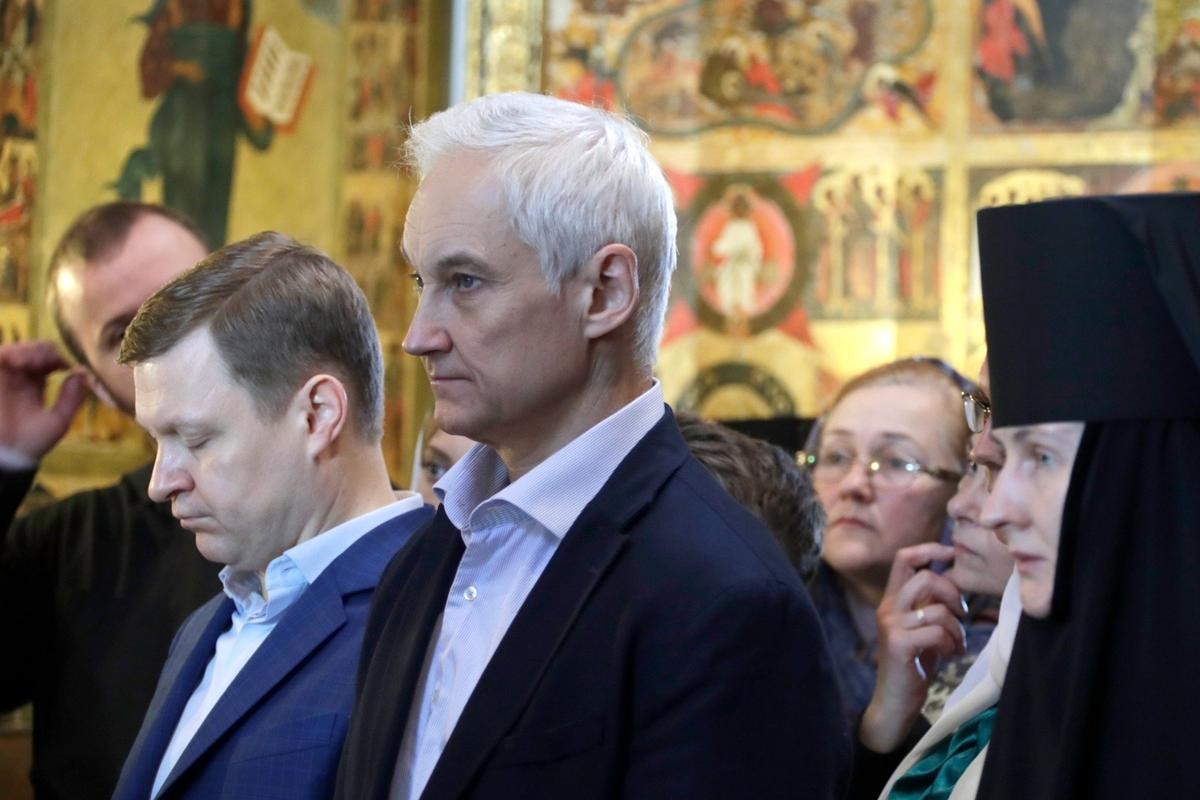The Russian Minister for the Defence of Orthodoxy
Unlike the post-Soviet 'converted' politicians Andrej Belousov is one of the patrons of the Diveevo Monastery, the historical seat of St Seraphim of Sarov. Since the early 2000s, the influence of "presidential orthodoxy" has been concentrated here in the place that symbolises a spirituality that in the early 20th century was considered too close to the heresy of the Old Believers, convinced of the superiority of Russian Christianity over Byzantine Christianity.
Moscow (AsiaNews) - The appointment as new defence minister of Andrei Belousov, an economist and son of a great Soviet economist, but above all an active member of an Orthodox fraternity, has attracted the attention of everyone in Russia, so much so that many wonder whether his ecclesiastical service was considered more important for his appointment than his economic competence.
Unlike post-Soviet 'converted' politicians, such as President Vladimir Putin himself, Belousov is in fact a fully-fledged Orthodox and one of the patrons of the Diveevo Monastery, the historical seat of the Holy Seraphim of Sarov.
In fact, the Diveevo fraternity that administers the community elected him as its main guardian a few years ago, to take care of the good management of the so-called "mysteries of Diveevo", the sacramental and prophetic graces that descend from the legacy of the 19th-century saint, much loved even in the West as the Russian "Saint Francis".
In reality, Belousov is also a fairly recent convert, having been baptised at the age of 47 in 2007, in his home village of Pučkovo in the Moscow province, accompanied by his younger brother, also an economist, who had already been part of the community for years. Together the two brothers served for years at the parish altar of Protoierej Leonid Tsarevsky.
Now he is the head of the fraternity attached to the large monastery 600 km east of Moscow, considered the 'mystical centre' of contemporary Russia. In it, an orthodoxy mixed with healing practices and occultism is practised, in which there is a great nostalgia for Soviet times, when the whole area was forbidden to visits due to the presence of the Arzamas military centre, a place of experiments with atomic weapons.
This makes Belousov's war sensibility far more significant than his own experience in government, where he served as deputy minister of economy in the previous Putin mandate, considering that the 'special operation' in Ukraine is strongly motivated by religious visions, which precisely in Diveevo find one of their main sources of inspiration.
Today, the monastery of St. Seraphim inherits that 'spiritual paternity' over the new Russia that some twenty years ago was entrusted to the Russian Athos Association, taken care of by Vladimir Putin's presidential administration itself.
The current state of schism with the Greek Orthodox Church has severed this historic relationship with the Holy Mountain of Chalkidiki; in the last year of ecclesiastical communion, 2018, over 0 million was allocated to Athos by Russian politicians and oligarchs, and now this patrimony is pouring into Diveevo, as well as other monasteries for which similar support structures have been created, such as the Trinity Lavra of St. Sergius, those on the Solovki Islands, Valaam, Novyj Ierusalim and others.
Patriarch Kirill of Moscow hastened to take the patronage of all these oligarchic-monastic associations, fearing that he would lose control over the entire ecclesial body, and the history of the Valaam group shows how well-founded these fears were. Since the early 2000s, the influence of the 'presidential orthodoxy' is concentrated here, which is also asserting itself over the patriarchal orthodoxy.
Moreover, this is precisely the history of the monastery, evoked ever since the centenary of the canonisation of Saint Seraphim, proclaimed in 1903 by Tsar Nicholas II against the will of the Synod of Orthodox metropolitans and bishops (at that time the patriarchate had not yet been restored), who saw in the very mystical and original saint a contiguity with the heresy of the Old Believers, the sect of those who believe in the superiority of Russian Christianity even over Byzantine Christianity.
It is no coincidence that Putin has repeatedly shown sympathy for the heirs of this 'spiritual superiority' affirmed in the seventeenth-century turmoil, and the appointment of the trusty Belousov today also redraws the dimension of the 'symphony' between State and Church in Russia, where the defence minister becomes the true spiritual guide of the people at war.
12/02/2016 15:14







.png)










